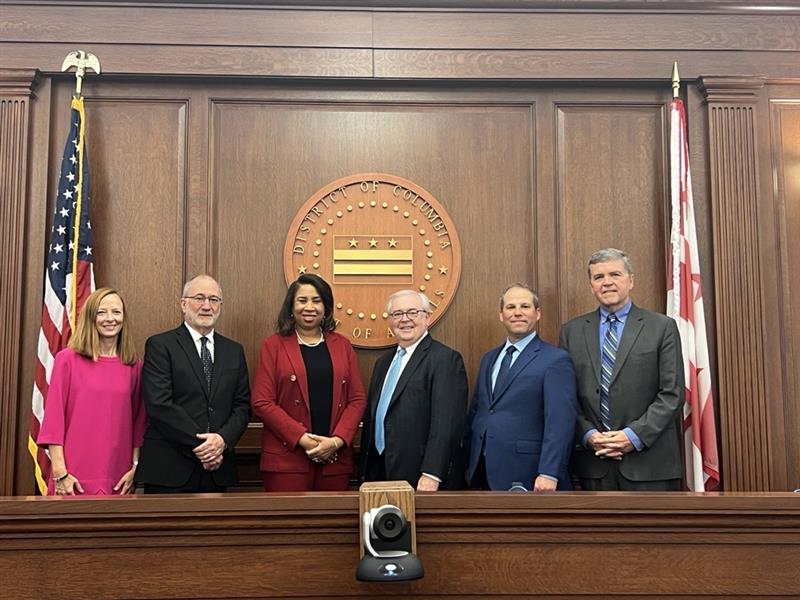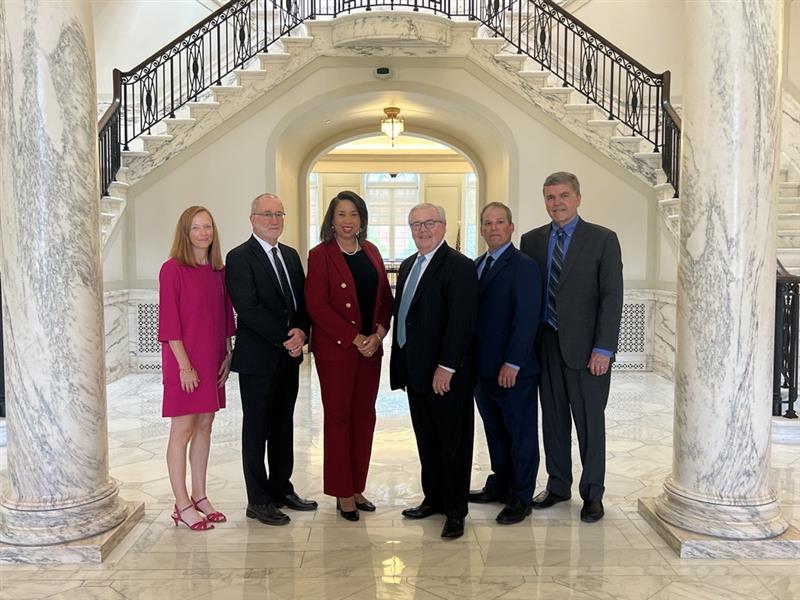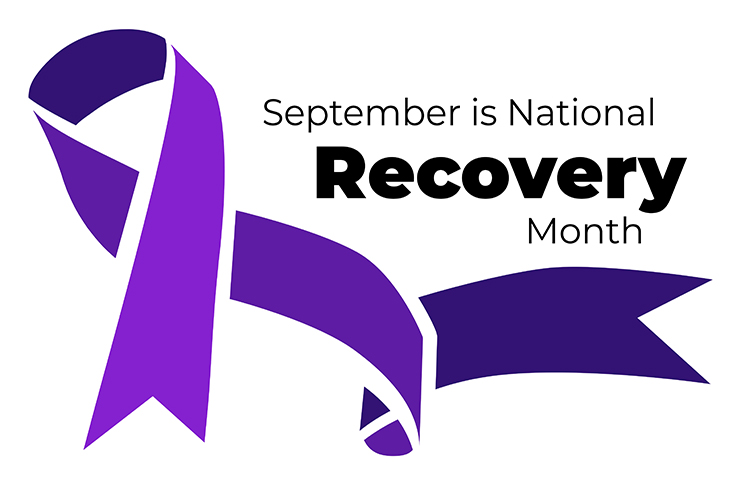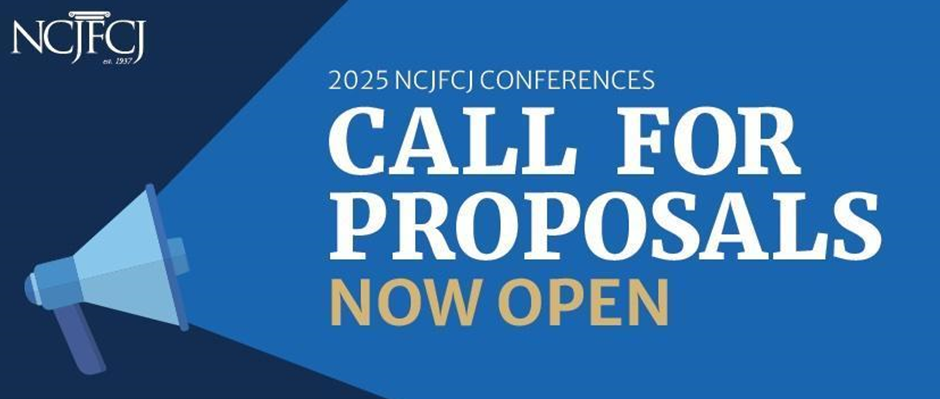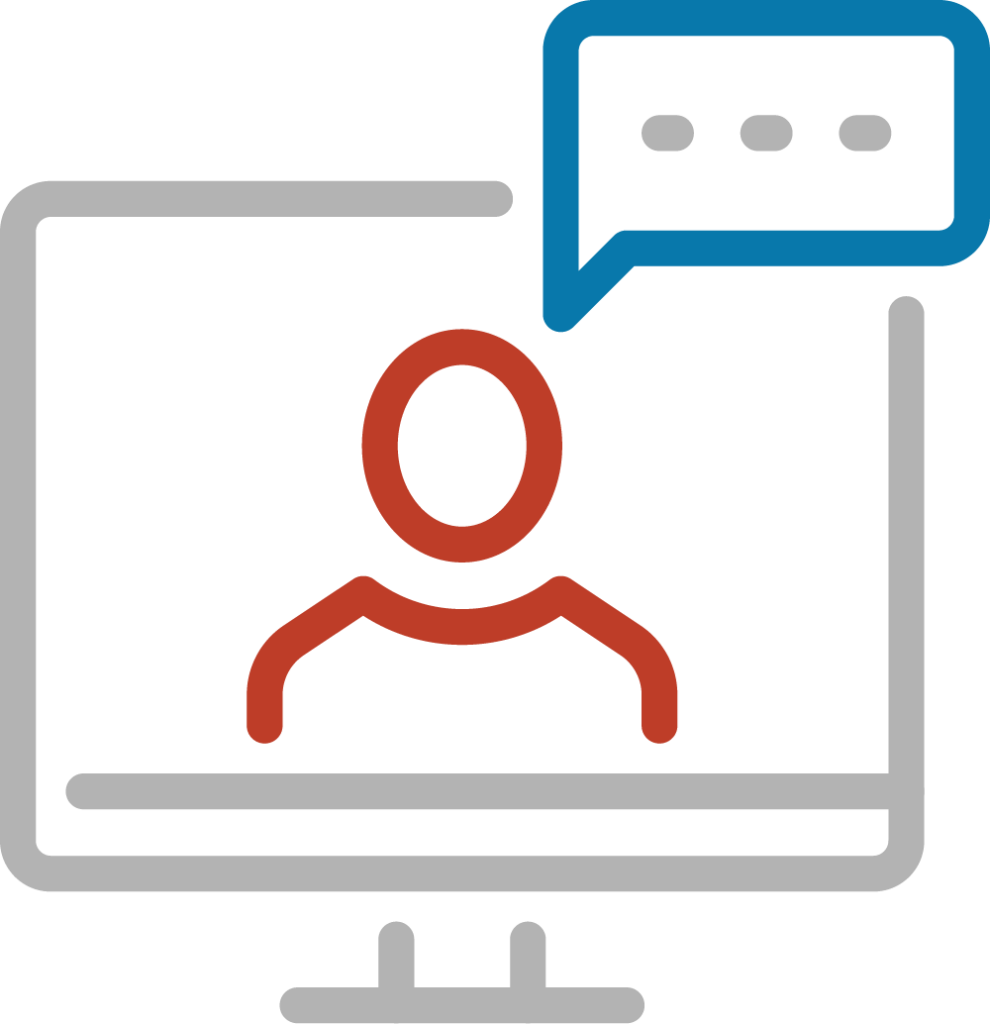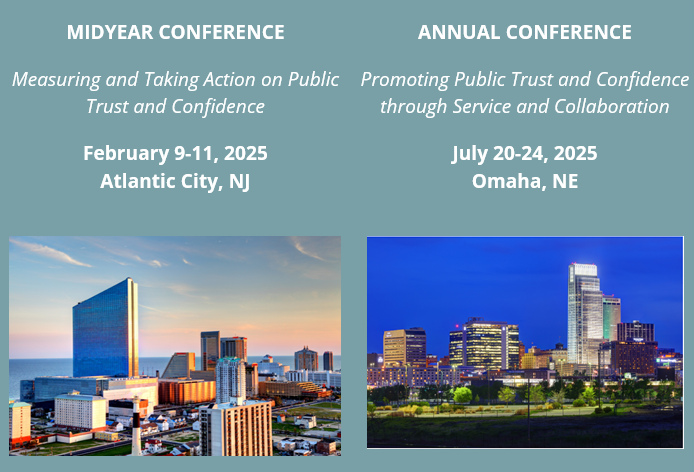The 4th Quarter Board Meeting was held on September 9, 2024, at the District of Columbia Court of Appeals in Washington, D.C. Members of the SJI Board, Executive Director, Jonathan Mattiello, and Senior Program Advisor, Michelle White, were joined by Chief Judge Anna Blackburne-Rigsby, Clerk of the Court of Appeals Julio Castillo, Executive Officer of the Courts Herbert Rousen, and other court staff.
SJI received seven grant applications requesting a total of $410,864 for the 4th quarter of FY 2024.
The Board awarded one Project Grant to the Arizona Supreme Court to support the Arizona Legal Apprentice Program, which will provide an alternative pathway to licensure for individuals who score between 260 and 269 on the bar exam, with an overall goal of increasing the number of attorneys available to practice. Participants will work under a qualified supervising attorney for two years in a rural area or public interest area. Upon successful completion, participants will be fully admitted to the State Bar.
Three (3) Technical Assistance Grant applications were awarded: 1) the Superior Court of Riverside County, California, for a strategic planning project; 2) American University to further develop the National Judicial Network forum for human trafficking and the state courts; and, 3) the 6th Judicial Circuit Court of Michigan to develop a strategic plan and improvement priorities.
Three (3) Curriculum Adaptation and Training Grants were awarded: 1) the American Judges Association for educational programming during the 2025 annual meeting; 2) the National College of Probate Judges to engage expert faculty for the 2024-2025 educational meetings; and, 3) the Superior Court of Los Angeles County, California, to develop a comprehensive leadership academy to enable judges to develop the skills and abilities required to serve in leadership roles with the Court.
The next deadline for grant applications is November 1, 2024.


